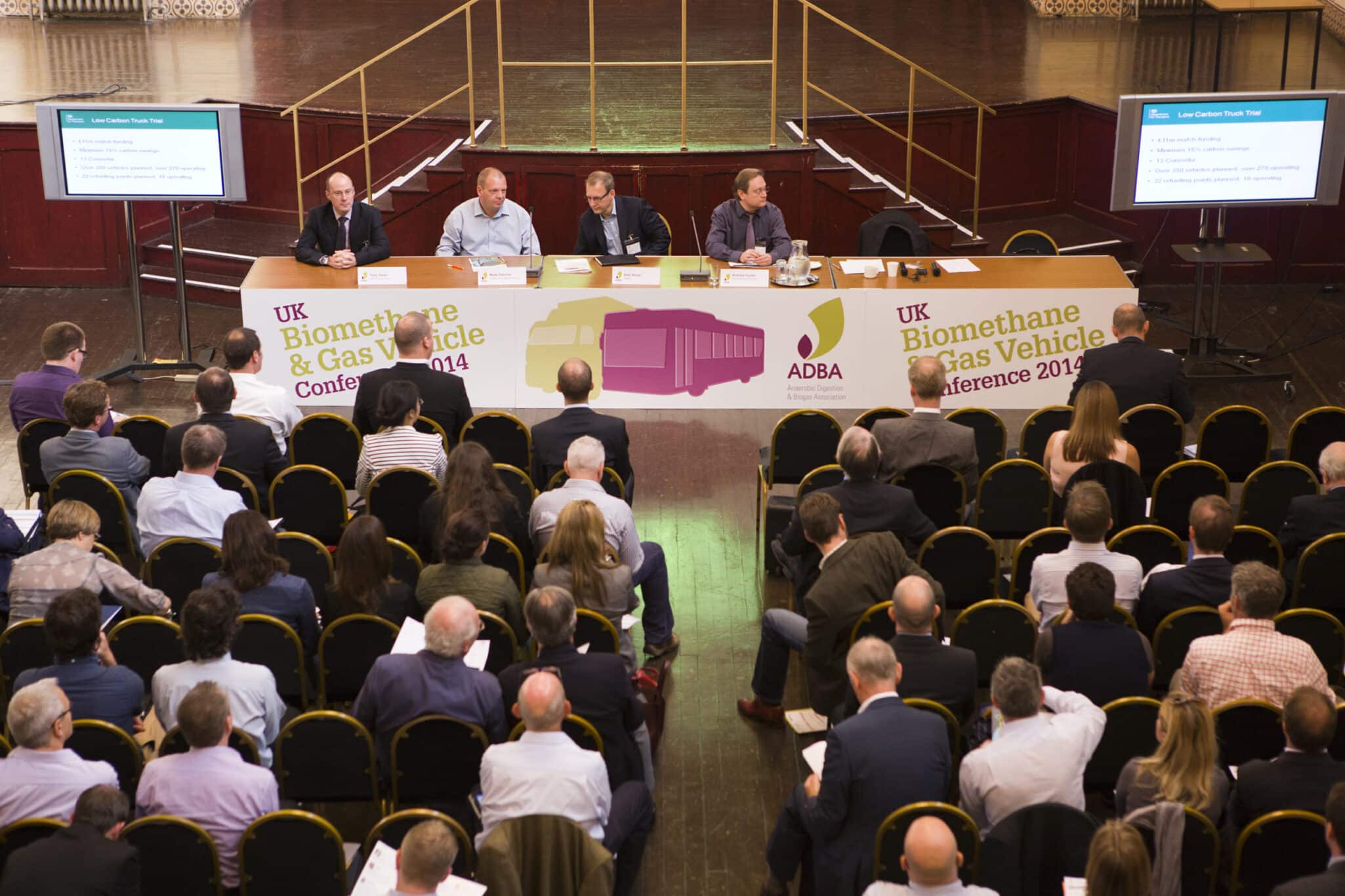MEMBER PRESS RELEASE - 2G Energy Highlights the Role of Gas Blending Systems in Enhancing…

ADBA conference to examine role of green gas in decarbonising transport
The role of biomethane in fuelling buses and municipal, light-duty and heavy-goods vehicles will be the key theme of the third ADBA Biomethane and Gas Vehicle Conference, taking place on the 28th September 2017 at the Queen’s Hotel, Leeds.
Biomethane is a low-carbon, methane-based transport fuel produced by anaerobic digestion (AD), a natural process that breaks down organic wastes and purpose-grown crops to create a biogas that can then be upgraded to biomethane. With more than 80 AD plants across the UK already producing biomethane, the UK AD industry has sufficient capacity today to produce enough biomethane to power 80% of the UK’s entire bus fleet and the potential to produce enough biomethane to power 75% of all heavy goods vehicles in the UK. Biomethane can also be used directly on farms to fuel agricultural vehicles.
The Biomethane and Gas Vehicle Conference is being organised by the Anaerobic Digestion & Bioresources Association (ADBA) and will highlight UK cities and businesses that are opting for biomethane vehicles to meet Clean Air Zone requirements and reduce greenhouse gas (GHG) emissions. Earlier this year Nottingham City Transport (NCT), who will be speaking at the event, unveiled a new £17m double-deck ‘Bio-Gas’ bus fleet, the largest of its kind in the world, while six major UK fleet operators are currently trialling 81 gas-fuelled HGVs in what has been described as the UK’s largest biomethane fuel trial to date. Biomethane can deliver an 80% GHG emission reduction on diesel vehicles and a key theme of the conference will be the role biomethane can play in the Government’s Clean Air Strategy, the first part of which was announced at the end of July.
Delegates at the conference will also discuss proposals in the Department for Transport’s recent Renewable Transport Fuel Obligation (RTFO) consultation that would more than double the demand for renewable fuels to 9.75%, growing the gas vehicle market and further stimulating the uptake of biomethane as a vehicle fuel. ADBA is calling for the introduction of a new ‘development fuel’ sub-target under the RTFO to bring stability to the Renewable Transport Fuel Certificate market, a key support mechanism for AD plants producing biomethane for transport.
Speakers and delegates at the conference will include transport officials, leading gas vehicle manufacturers, fleet operators, transport fuel suppliers, local authorities, AD operators, biomethane upgrading professionals, academics, gas certification companies, and farmers.
ADBA Chief Executive Charlotte Morton said:
Biomethane is crucial to decarbonising the transport sector, which accounts for 20% of the UK’s carbon emissions. As new biomethane-fuelled vehicles enter the market, local authorities, farmers, and bus and fleet operators can benefit from more options and reduced operating costs. Lower emissions from biomethane vehicles also mean they can play a crucial role in reducing scandalous levels of air pollution and improving human health.
ADBA’s Biomethane and Gas Vehicle Conference is the only event which brings together leaders in the AD industry with the transport sector, fuelling stations, fleet operators and local authorities to discuss the future of biomethane as a low-carbon transport fuel. Attendees will be able to discover the latest developments and exciting innovations in low-carbon transport fuels and network with transport and AD professionals to see how they can get the most out of biomethane.
Gary Mason, Engineering Director at NCT, who will be speaking at the conference, said:
NCT were looking for a fuel technology that provided clean tailpipe emissions, reduced carbon footprint and provided economical operation whilst giving an acceptable range and requiring conventional maintenance regimes. Biomethane achieved all of these objectives and also resulted in a bus that was quieter and smoother-running than its diesel counterpart.
Richard Gueterbock, Marketing Director for AD plant designers and builders Clearfleau, said:
A recent Aker Associates report for Clearfleau shows that biomethane generated on food factory sites is a potential low-carbon replacement for diesel used for food distribution. With growing concern over the environmental and health impacts of diesel, the next step is to use biomethane produced on factory sites for distribution of food products from farm to factory and from there to consumers.
Electric power is not suited to commercial transport. Biomethane provides a lower carbon alternative to compressed or liquefied gas (CNG/LNG) already used by companies like Arla and Waitrose. Using process residues to produce biomethane-for-transport fuel on factory sites is an example of the circular economy in action. For instance, dairies could use cheese-making residues to provide gas to power the trucks which collect the milk as well as deliver the cheese.
Those interested in attending the conference can register here.
